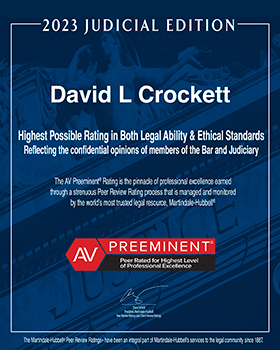Preservation Solutions
Trust and Probate Litigation
Orange County Probate Trust Litigation Attorney
LITIGATION CAN OCCUR

Where there are disagreements about the handling of probate assets or trust assets people are entitled to file litigation in the probate court. A probate court lawsuit is known as a ”petition” which is a written document getting all of the details that the person filing is complaining about. If people are not happy about the progress of a probate or a trust administration they can file a court petition to have the trustee removed and essentially put pressure on the trustee or administrator to get the job done.
Sometimes court petitions are necessary in this area because people don’t think that the law actually applies to situations involving relatives. Nothing could be farther than the truth. Most probate and trust disputes involve fights among relatives such as stepson again stepmother brother against brother or sister against sister etc.
Trust Litigation & Disputes, Will Contests, Real Estate Quagmires, lis pendens Actions
If you suddenly find yourself in a messy family drama you’ve arrived at the right place! It is not uncommon for individuals or businesses to find themselves involved in legal disputes involving an estate, trust or guardianship. Disputes such as a will contest, inheritance, creditor claim or spousal rights may become ugly very quickly. These disputes can cause resentments between family members that can last a lifetime. Moreover, these disputes can result in devastating financial consequences for all parties involved if not quickly settled. We have 35+ years of untangling these disputes and thousands of real life stories that are likely very similar to your own. There IS light at the end of the tunnel. Life can be messy. We are here to help you straighten out the disputes and legal issues ending in the best possible outcome. ACTUAL STORIES HERE
WE REPRESENT ALL TYPES OF CLIENTS
Crockett law Corporation represents trustees of trust, executors of probate estates, beneficiaries and other interested parties of estates and trusts and creditors of estates and trust. Usually what people are interested in is getting what they believe their fair share of the money or property is that is tied up in the trust or estate. Given that David L Crockett is also a certified public accountant, he can cut through a lot of seemingly foggy details and ask the proper pointed questions to figure out where the money is and who is entitled to it.
TYPICAL TYPES OF LAWSUITS/COURT PETITIONS. California laws are quite specific about the types of things that can be sued on. Those typically include but are not limited to:
- Removal of the trustee for breach of trust and/or range of fiduciary duty including negligence for mismanagement of estate assets or mismanagement of tax payments;
- Removal of trustee for unauthorized loans from the trust or estate, for conflict of interest in dealing with the estates business and properties and for various types of self-dealing that give the executor or trustee an unfair advantage;
- Removal of the probate executor or administrator for failure to file an inventory or failure to disclose assets;
- Surcharge against the trustee to make the trustee put back money that was improperly spent or taken from the trust or estate;
- Disputes over “no contest clauses” which can at times be very tricky;
- Elder abuse claims;
- Creditor’s claims whereby somebody claims that the deceased owed them money;
- Will contests including litigation over interpreting of wills and trusts to determine who actually is supposed to get what assets;
- Petitions to determine entitlement to estate distribution;
- Petitions complaining about trustees paying themselves excessive compensation.
STAGES OF LITIGATION IN THE PROBATE COURT
Probate court petitions and litigation are similar to litigation in the civil courts but there are some differences. In probate court instead of the person starting the case being called a plaintiff he/she is called the petitioner called the petitioner called a petitioner called called the petitioner. Instead of calling somebody a defendant he/she is called a “respondent”. The probate court has its own staff of attorneys who examine all paperwork filed and often times ask questions and require additional information to be filed with the court at various stages. The point of that is to give the judge sufficient information to be able to make an intelligent decision. A probate court case starts out by filing of a petition and when the petition is filed a hearing date is set. The hearing date is usually 5 to 8 weeks after the petition filing and before the hearing date the other side must file a response. After that, a status conference is typically set months ahead to give both sides the opportunity to subpoena records and take depositions to create the evidence necessary to prove their case and/or defend against it. Mandatory settlement conferences are usually required and if the case doesn’t settle then there is a trial by a judge in the probate court to decide the case. There are no juries in probate court proceedings.
Read David Crockett’s Detailed Blog Posts:
Click Here for Posts Regarding TRUST & PROBATE LITIGATION









